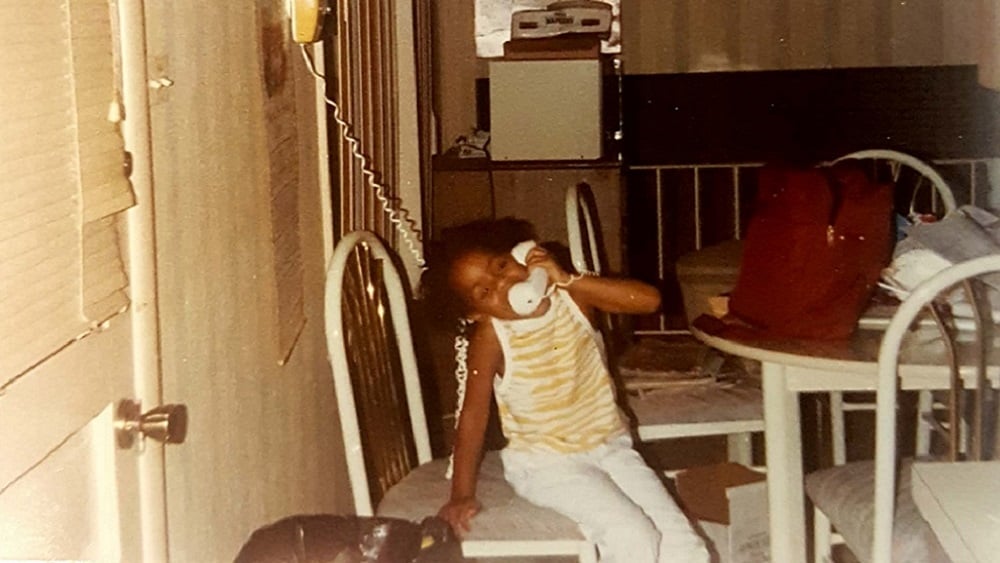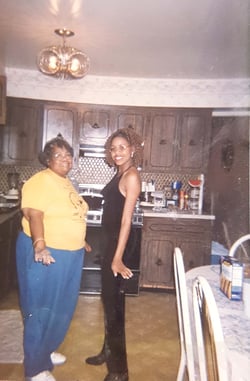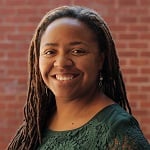Bid Whist & Blessings
By Seasons
Death and I became acquaintances at a very young age. Raised by my extraordinary, single mother, and two incredible grandparents, I’ve always been proud of my strong African American roots. While kids across the country spent their summers camping and going on road trips, I spent my time sitting on decades-old wooden pews in churches across the Chicago-land area.
While there was no tragedy early on in my own life, my grandmother was a proud member of the Eastern Star organization, which meant there were often funerals to attend with the ladies in white. I rarely knew the recently deceased, so in between chapters of my Baby-Sitter’s Club books, I would observe the family dynamics and analyze the details included in each obituary. At the time, I didn’t appreciate this intrusion during my break from school, but, as they say, hind sight is 20/20.
Many years later, when I was in high school, I received a phone call to come to the hospital. My grandmother, a key component in my stable childhood, had died. I didn’t understand how it could have happened. When I’d visited her in the hospital just a few days before, she had been sitting up, talking to me as she would at home, with Wheel of Fortune on the television. She had been there under 24/7 observation for three weeks, yet no one had talked to us about the fact that she could pass at any time, and our family was unprepared for this event. After weeks of countless tests and signs of declining health, her death should not have been a surprise to us. But it was, and it left us with the question: why was she suddenly gone?
For years, I’ve reflected on that time in her life, and I believe it has led me to the most fulfilling career I’ve ever had. As a hospice employee, I get to see patients being treated with respect while making the most of their terminal diagnosis each and every day. Whether it’s enjoying a music therapist singing Motown hits in the living room, or a social worker offering support, 1.3 million families are experiencing amazing care every year. I feel so blessed to play a small part in ensuring final wishes are granted and legacies are created as families across the country receive high quality care from our teams. However, I’d be remiss if I didn’t admit that at times I feel slightly envious. I wish I had had that with my grandmother. 
While I firmly believe that doctors should do what they can to save the lives of their patients, we must be able to trust them (and even at times prod them) to have the tough conversations when there is a terminal diagnosis. No one wants to have that difficult conversation, but death is an inevitable part of life. Having these conversations about death ahead of time, gives families a chance to decide how they want to spend this last period of living, so that instead of uncertainty and panic, families can experience peace and togetherness in the final precious days.
Last year, I went to visit a patient and upon entering his home, a sense of nostalgia overwhelmed me. The art on the walls. The scents. The smiles and welcoming embraces from his family. This home felt like my childhood. Meeting this family and hearing about the bond our Phi Beta Sigma patient has with his Zeta Phi Beta hospice aide over their love for their respective Greek Fraternity/Sorority felt… right. At some point during the visit, as we shared laughter and stories, I realized that this was the first patient I visited that looked like me.
My concern with hospice care in America lies with the lack of diversity in patients. According to the NHPCO Facts and Figures from 2015, “Fewer than 9% of those entering hospice programs across the country are African American.” What is preventing us from accepting the extra support?
An inherited distrust of the healthcare system stemming from mistreatment of minorities in the past, combined with a misunderstanding of what hospice truly is, prevents people of color from benefiting from these services. But we cannot allow the stigma and fear of the past to prevent us from taking advantage of services that can bring peace and healing to our families in these important last moments, days, weeks, and even months.
Here are some of the things I wish my family had known about hospice all those years ago:
-
-
- Hospice is about caring for the whole person, so you receive not only medical, but also spiritual and emotional support.
- Hospice is not a place you go to. You can receive the comfort and support provided by a team of caregivers wherever you call home, whether it be your living room or a nursing facility.
- You don’t have to wait for the last week of life to come onto hospice. You can benefit from hospice services after you have been given a diagnosis of 6 months or less to live.
- Hospice is not an extra expense you have to worry about. Hospice expenses are covered by Medicare, Medicaid, and/or private insurance.
- The hospice team is there to support the patient’s family, not replace them in any way.
-
Like every other American, the African American community has the right to take advantage of this benefit and the support that is provided. If given a referral to hospice, I know exactly what my granny would have wanted—a party with her friends and family—playing bid whist, my grandfather manning the grill, her music therapist playing Ray Charles, and a pastor there to make sure we were properly blessed before indulging. If we had known what was coming, if we had known what hospice was, she would have had that ten times over.
I do not question God’s timing with any event that has taken place in my life; they’ve all led me to where I am today. I know that he has called me to help as many people as possible to have the death, and more importantly the life, that they deserve. So, I urge you to think about what you would want, have your advance directive in place, and ask the tough questions. And if your family is dealing with a terminal diagnosis, remember, hospice isn’t about dying—it’s about living!
 About the Author: Nicole McCann-Davis is a resident of Oak Park, IL. She is a wife and mother of two beautiful, though active, girls. When they’re not keeping her busy, she is active in her community on the PTO and coaching t-ball. As a former hospice volunteer, Nicole is passionate about healthcare access for all. She is the current Manager of Communications for Seasons Hospice & Palliative Care.
About the Author: Nicole McCann-Davis is a resident of Oak Park, IL. She is a wife and mother of two beautiful, though active, girls. When they’re not keeping her busy, she is active in her community on the PTO and coaching t-ball. As a former hospice volunteer, Nicole is passionate about healthcare access for all. She is the current Manager of Communications for Seasons Hospice & Palliative Care.